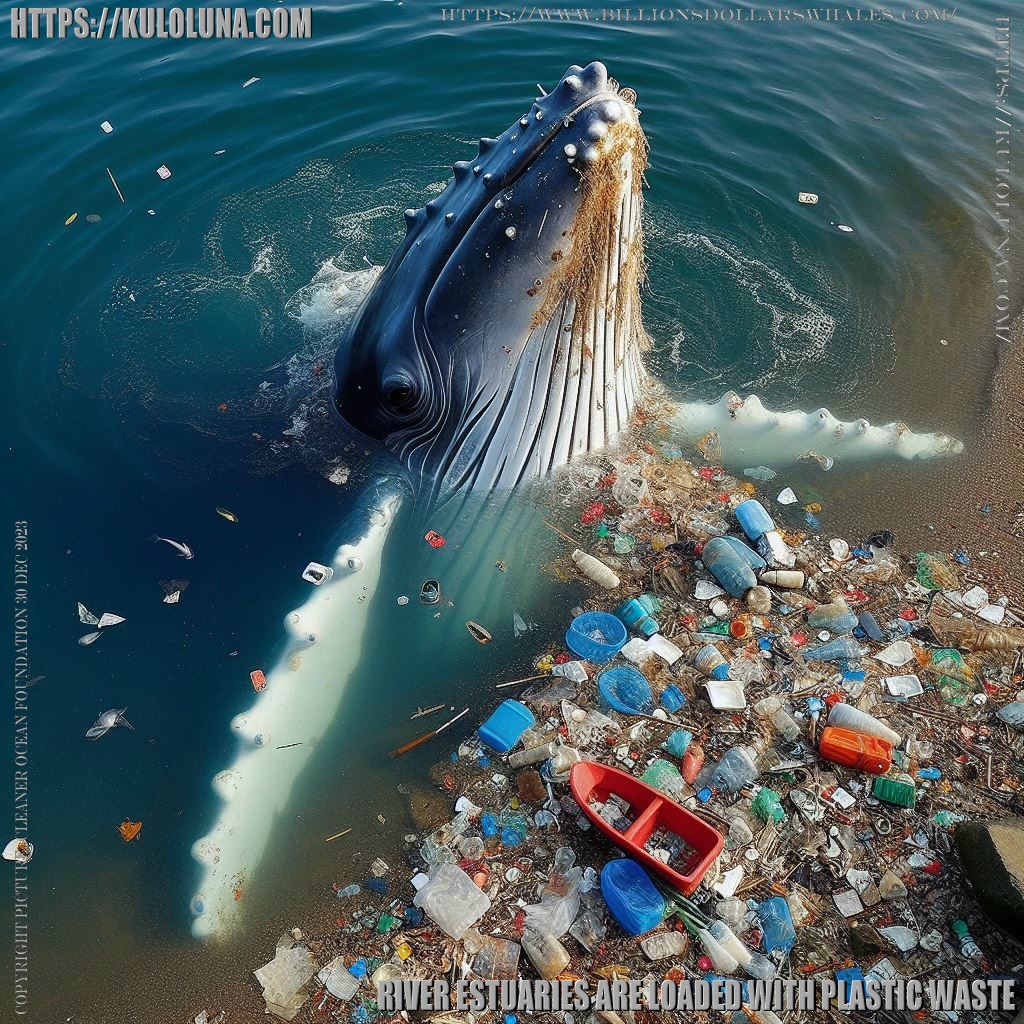
There are some reports and studies about humpback whales being caught up, drowning or otherwise killed in ghost fishing nets or ropes. Ghost fishing is the term used to describe the entanglement or trapping of marine animals by lost or abandoned fishing gear. Ghost fishing can cause serious injuries, infections, starvation, suffocation, drowning, or predation to the affected animals.
According to web search results, humpback whales are one of the species that are vulnerable to ghost fishing, especially in their migration and breeding grounds.
Piracy
takes many forms. In days of old the term referred to seafaring robbers,
swinging from one ship to another with cutlasses, to steal from the
unfortunate target.
Even
today, pirates board and hijack
ships, holding the crew and vessel to ransom.
But
just as bad, ecologically, fishermen are the new blaggards of the sea.
Some of the less scrupulous scoundrels going out of their way to catch
protected species. Others, simply exceeding sustainable quotas, in
conservation areas. These are longer term losses, in the name of short
term profits. Robbing the sea of its bounty. Dashing all hopes of a
sustainable future Blue Economy.
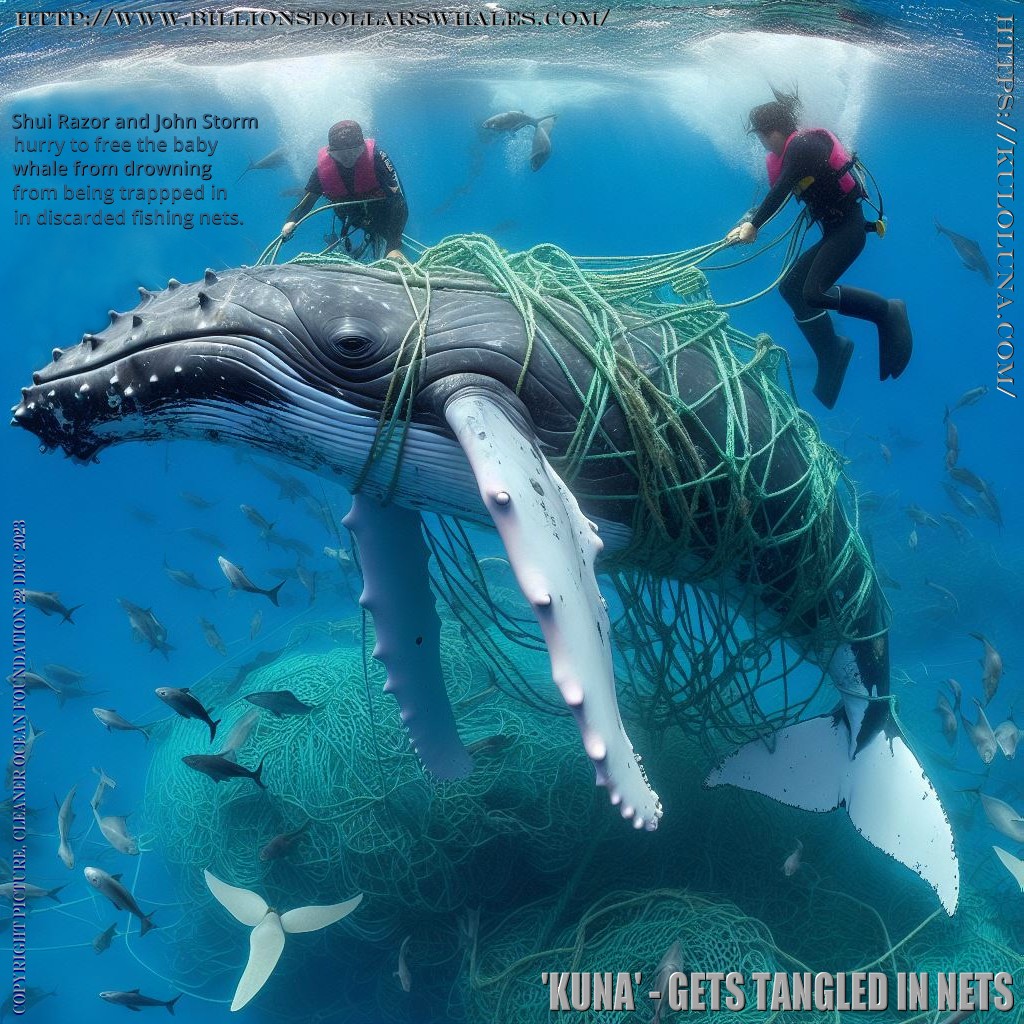
Plastic pollution is a serious threat to marine life and ecosystems. Plastic can affect marine species in various ways, such
as entanglement with large items of plastic, including fishing gear, six-pack rings, and plastic bags, can capture and entangle marine mammals, fish, turtles, and birds, and prevent them from escaping, feeding, or moving normally. This can cause injuries, infections, starvation, suffocation, drowning, or predation.
Any way you slice it, the black market side of the blue
economy is potentially harmful to food
security. Any black market activity represents a burden on those who
are trading legitimately. Illegal fishing, except for anglers, fishing
for own use, upsets the efforts of those who are working to restore
fisheries. Illegally caught products can provide unfair competition in the marketplace for law-abiding fishermen and seafood industries.
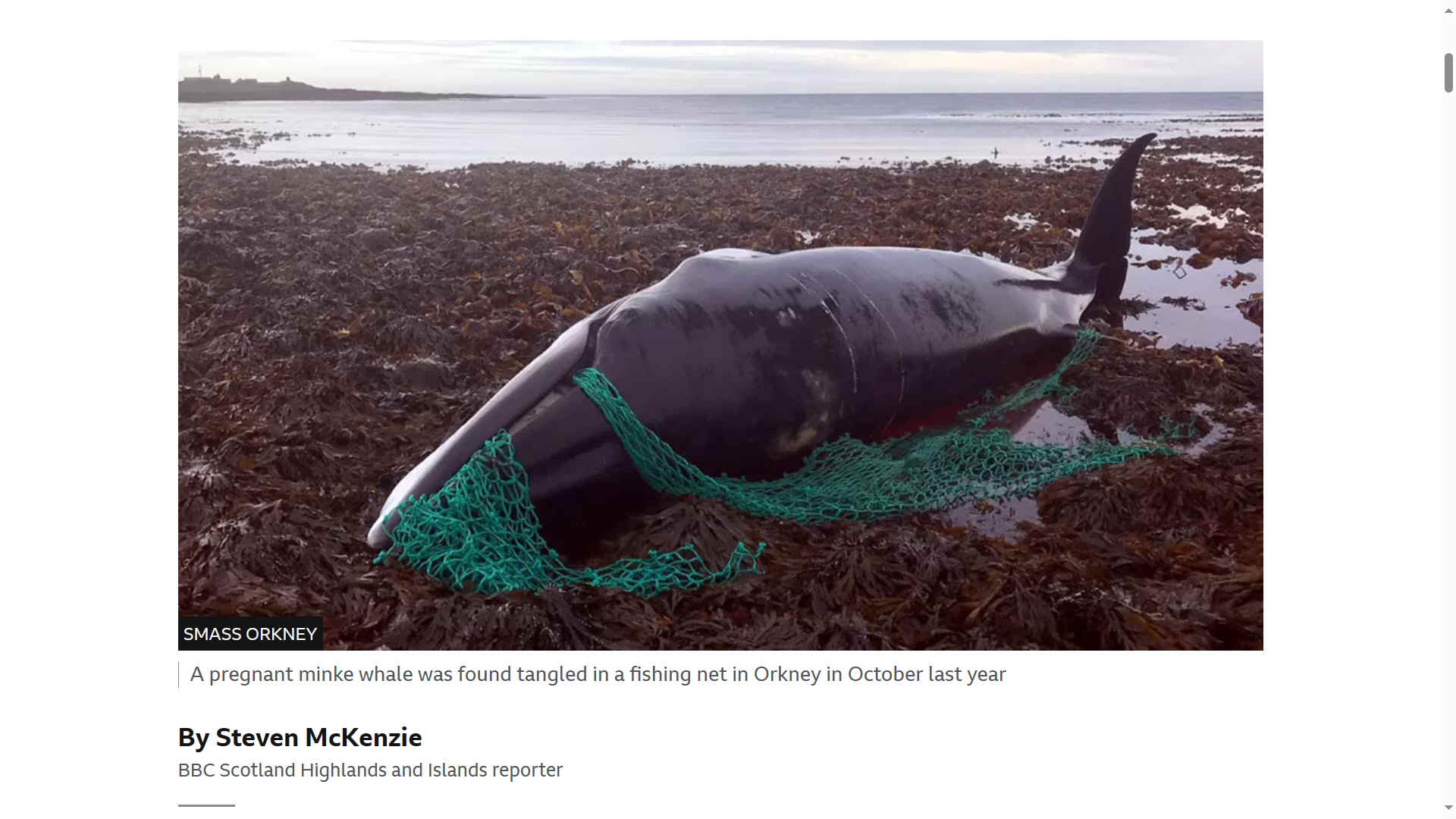
OCTOBER
2019 - In Scotland, the Scottish Marine Animal Strandings Scheme (Smass), which investigates marine animal deaths, recorded 12 entanglement cases in 2019.
They included a pregnant Minke whale found dead and tangled in a fishing net in Orkney in October. The net was jammed in the animal's baleen, the filter-feeder system inside its mouth.
In May, a humpback whale entangled in fishing gear washed up dead close to Scrabster, near Thurso on the north Caithness coast.
The previous month, another humpback whale was found to have been entangled in rope for "weeks, if not months" before it drowned off the East Lothian coast near
Tyningham.
Illegal, unreported, and unregulated fishing activities violate both national and international fishing regulations. IUU fishing is a global problem that threatens ocean ecosystems and sustainable fisheries. It also threatens our economic security and the natural resources that are critical to global food security, and it puts law-abiding fishermen and seafood producers in the United States and abroad at a disadvantage.
lllegal fishing refers to fishing activities conducted in contravention of applicable laws and regulations, including those laws and rules adopted at the regional and international level.
Unreported fishing refers to fishing activities that are not reported or are misreported to relevant authorities in contravention of national laws and regulations or reporting procedures of a relevant regional fisheries management organization.
Unregulated fishing occurs in areas or for fish stocks for which there are no applicable conservation or management measures and where such fishing activities are conducted in a manner inconsistent with State responsibilities for the conservation of living marine resources under international law. Fishing activities are also unregulated when occurring in an RFMO-managed area and conducted by vessels without nationality, or by those flying a flag of a State or fishing entity that is not party to the RFMO in a manner that is inconsistent with the conservation measures of that RFMO.
EXAMPLES OF IUU FISHING:
- Fishing without a license or quota for certain species.
- Failing to report catches or making false reports.
- Keeping undersized fish or fish that are otherwise protected by regulations.
- Fishing in closed areas or during closed seasons, and using prohibited fishing gear.
- Conducting unauthorized transshipments (e.g., transfers of fish) to cargo vessels.
IUU fishing poses a direct threat to food security and socioeconomic stability in many parts of the world. Developing countries that depend on fisheries for food security and export income are most at risk from IUU fishing. For example, total catches in West Africa are estimated to be 40 percent higher than reported catches. Many crew members on IUU fishing vessels are from poor and underdeveloped parts of the world, and they often work in unsafe conditions.
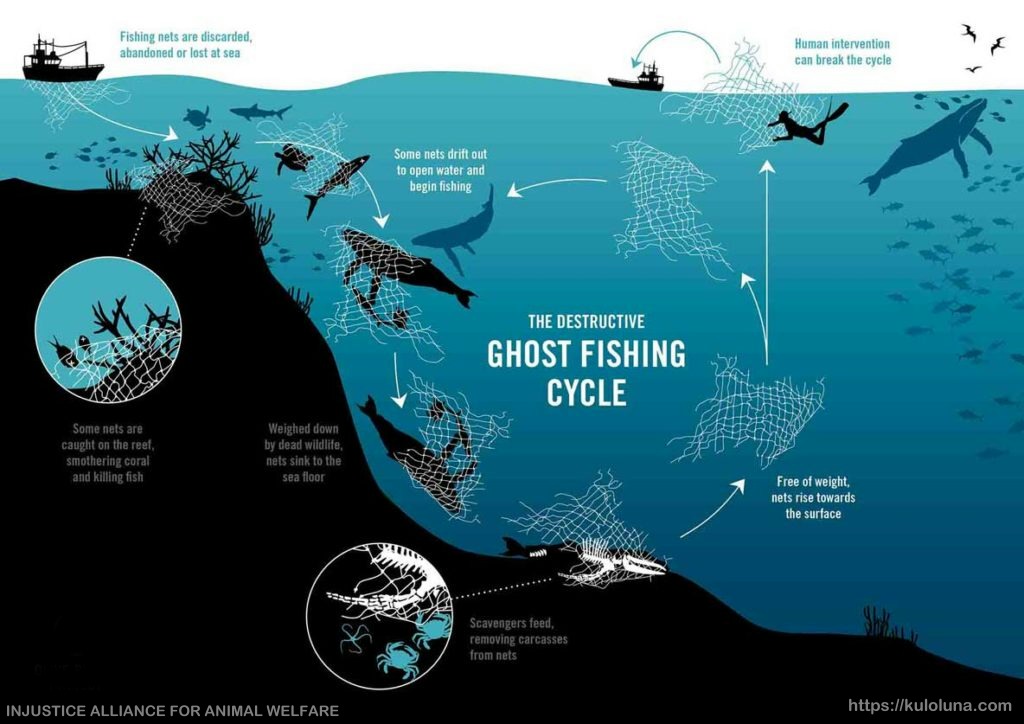
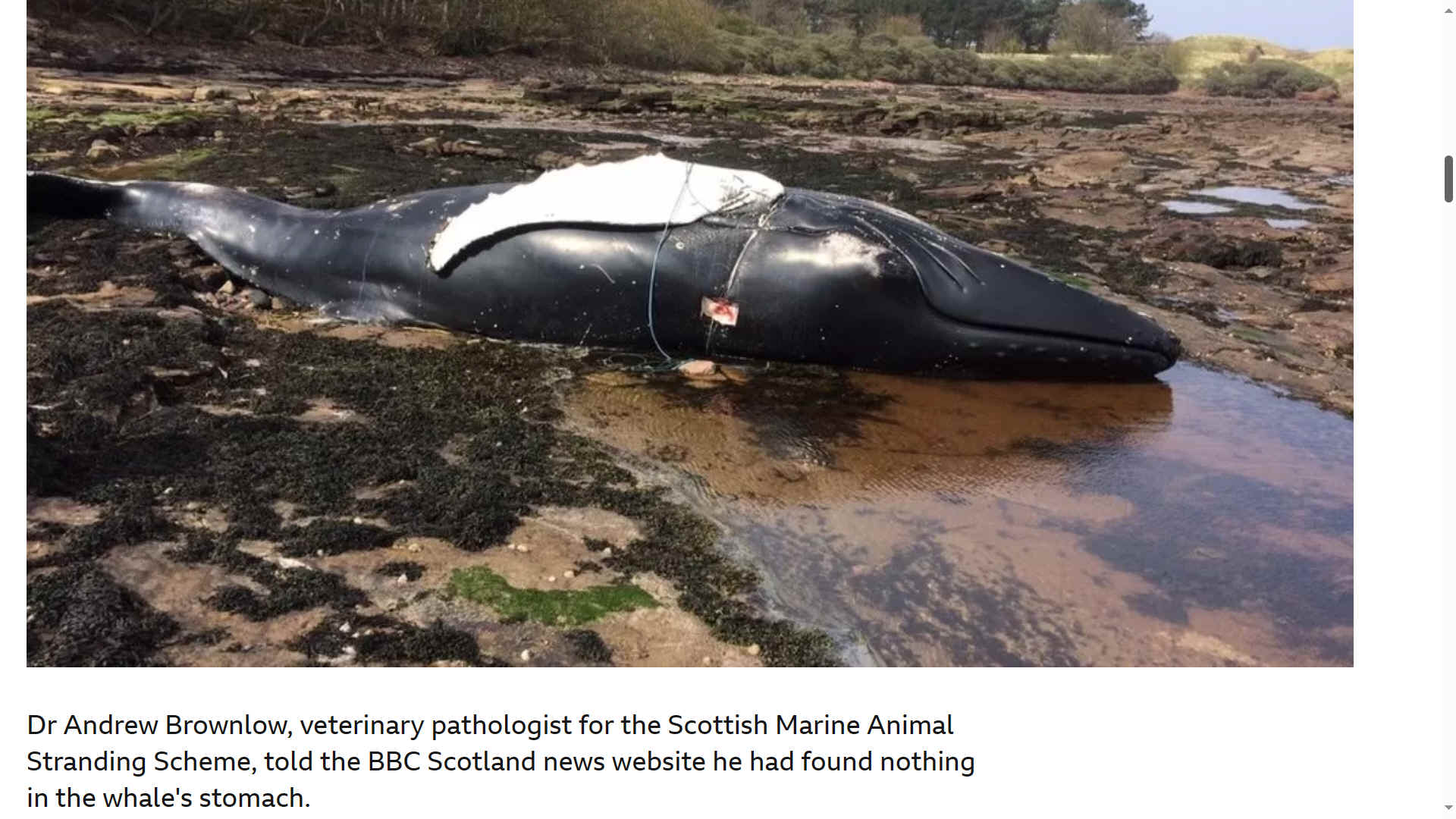
APRIL
2019 - A humpback whale was entangled in rope for "weeks, if not months" before it drowned off the coast of East Lothian, a post-mortem examination has found.
The young male, which was about nine metres long (30ft), was found at John Muir Country Park, near Tyningham.
Experts said the marine mammal had become very weak and had the most parasites they had ever seen.
The whale was towed out to sea and moved to another beach for the five-hour necropsy on Wednesday.
Dr Andrew Brownlow, veterinary pathologist for the Scottish Marine Animal Stranding Scheme, told the BBC Scotland news website he had found nothing in the whale's stomach.
https://
Please use our
A-Z INDEX to
navigate this site

